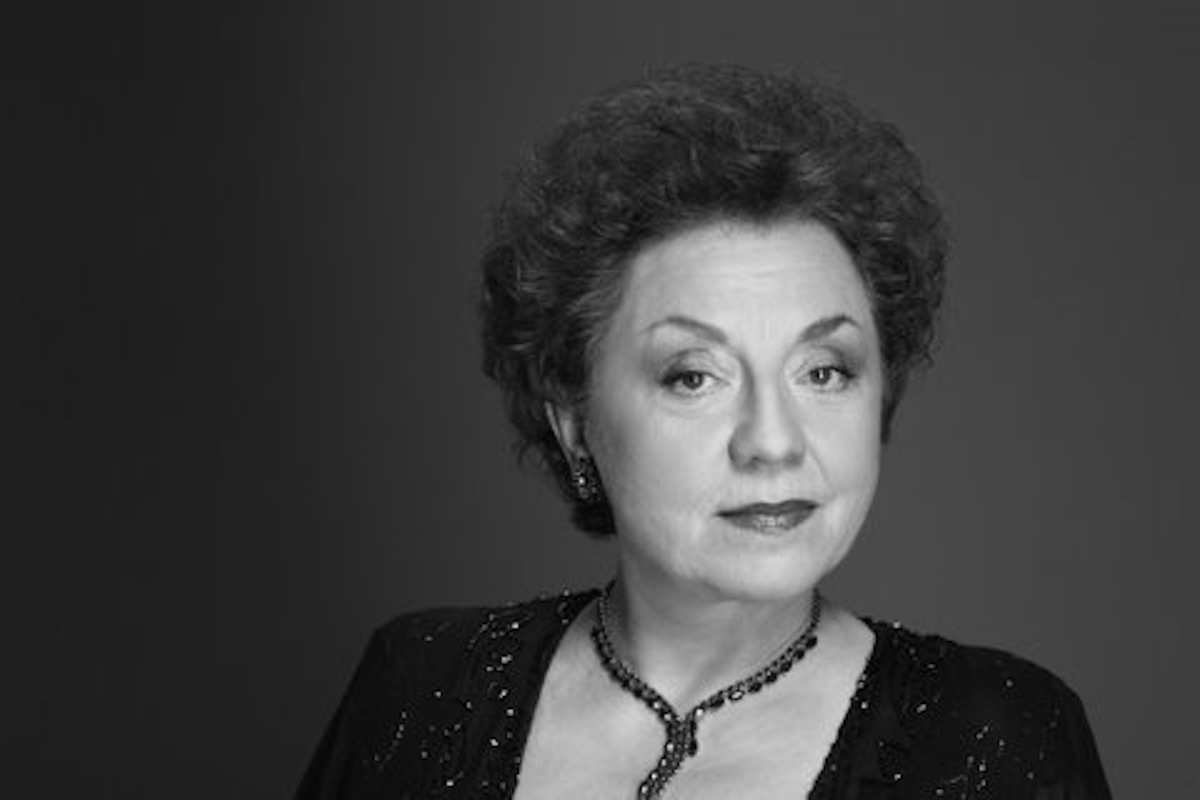On January 19, the prominent Polish opera singer Ewa Podleś died. Information about his death was published by Ruch Muzyczny on his Facebook profile. He has one of the rarest types of voice – contralto. He became famous as an unsurpassed performer of works by Rossini, Handel and Verdi, and also an outstanding performer of oratorio-cantata songs and music. He has made numerous studio recordings for world-renowned record labels.
“Ewa Podleś is dead. Information about his death was provided to our editorial office by Anna Marchwińska, daughter of Jerzy Marchwiński, pianist, lifelong and stage partner of the singer, who died on November 7, 2023. Joining their loved ones in pain, we express our sincere condolences, ” we wrote.
Ewa Podleś was born on 26 April 1952 in Warsaw. He graduated from the Music Academy. Fryderyk Chopin in Warsaw in Alina Bolechowska's singing class. She made her debut in 1975 at the Warsaw Opera as Rosina in Rossini's “The Barber of Seville.”
He is the winner of the 7th International Competition. Pyotr Tchaikovsky in Moscow, as well as vocal competitions in Athens, Barcelona, Geneva, Rio de Janeiro and Toulouse.
After appearing in the title role in Handel's “Rinaldo” at the Metropolitan Opera in 1984, he began his international career. In 1993, she made her debut at La Scala in Milan in the title role of Tancreda by Gioachino Rossini.
The artist has performed on the most prestigious opera and concert stages in the world, including: at La Scala in Milan, Covent Garden in London, Teatro Liceo in Barcelona, Carnegie Hall in New York, Wigmore Hall in London , Theater des Champs Elysees in Paris, Grand Theater – National Opera and National Philharmonic in Warsaw.
He has one of the rarest types of voice – contralto. He became famous as an unsurpassed performer of works by Rossini, Handel and Verdi, and also an outstanding performer of oratorio-cantata songs and music. He has made numerous studio recordings for world-renowned record labels.
Her repertoire includes such roles as: La Cieca (“Gioconda” by Ponchielli), Clytemnestra (“Electra” by Strauss), Azucena (“Il Trovatore” by Verdi), Caesar (“Julius Caesar” by Handel), Cyrus (“Cyrus” in Babylon” by Rossini), Tancred (“Tankred” by Rossini), Isabella (“The Italian in Algiers” by Rossini), Marquise de Berkenfield (“Princess of the Regiment” by Donizetti), Duchess (“Sister Angelica” by Puccini ), The Quick Lady (“Falstaff” by Verdi), The Countess (“The Queen of Spades” by Tchaikovsky), Madame de la Haltiere (“Cinderella” by Massenet), Jeżibaba (“Rusalka” by Dworzak), Erda (“Das Rheingold” and ” Siegfried” by Wagner) and Babuleńka (Prokofiev's “Player”).
According to the Culture.pl website, Ewa Podleś is also a respected stage singer. He has performed with renowned orchestras such as: Saint Paul Chamber Orchestra, San Francisco Symphony, Detroit Symphony, Seattle Symphony, American Symphony, New World Symphony, Montreal Symphony, Toronto Symphony, NHK Tokyo, Maggio Musicale Fiorentino, National Arts Center Orchestra, Narodowa Orchestra Spain, Berliner Philharmoniker, Moscow Chamber Orchestra, Pittsburgh and Philadelphia symphony orchestras.
Ewa Podleś received a number of prestigious awards and honors, including: Dora Marvor Moore for the title role in Handel's opera “Julius Caesar” in Toronto; The award is named after Andrzej Hiolski for the title role in Rossini's Tancred in Warsaw; “Golden Stick” for all artistic activities; Gold Medal for Respect for Culture Gloria Artis; Kościuszko Foundation Award for outstanding contributions to the promotion of Polish and American culture; The Medal of Merit for promoting Russian culture was awarded by President Vladimir Putin.
In 2004, the artist was awarded the Commander's Cross of the Order of Polonia Restituta.
In 2001, an extensive interview was published by Dorota Szwarcman, entitled “Together in life and music. Conversations with Ewa Podleś and Jerzy Marchwiński” (PWM, Kraków).
On February 22, 2013, Ewa Podleś's grand birthday gala concert took place on the Warsaw stage with the orchestra of the Grand Theatre-National Opera. Accompanied by the promotion of the book “Ewa Podleś. Contralto assoluto” by French writer Brigitte Cormier (published by Edition Symetrie in France and PWM in Poland).
As reported on the Grand Theatre-National Opera website, “the prestigious periodical + Classic FM Magazine + listed Ewa Podleś among the ten best mezzo-soprano voices of the first decade of the 21st century.” “And a very original proof of reverence is the flower variety bred in her honor (2002), which the International Association of Iris Breeders in New York named +Ewa Podleś+” – emphasizes the singer's biographical notes.
Father

“Reader. Future teen idol. Falls down a lot. Amateur communicator. Incurable student.”


![Bogusław Wołoszański: “Achieving nuclear weapons would be the beginning of World War III” [WYWIAD]](https://storage.googleapis.com/bieszczady/rzeszow24/articles/image/877236c0-66fd-457a-9eb4-41792f9077ff)




